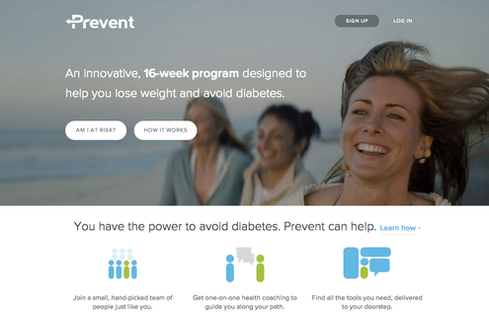Athenahealth To Share EHR Data With Physicians GroupAthenahealth To Share EHR Data With Physicians Group
Athenahealth to send its data on quality care to American College of Physicians, helping customers achieve a Meaningful Use Stage 2 requirement for quality data sharing.


8 Healthcare Startups Catch Fire
8 Healthcare Startups Catch Fire (click image for larger view and for slideshow)
Athenahealth will help customers achieve a Meaningful Use Stage 2 requirement for quality data sharing by sending data from the AthenaClinicals electronic health records service to the American College of Physicians, with CECity acting as a quality data exchange intermediary.
Athenahealth says this is significant because it's a service offered by no other EHR and will be available to American College of Physicians members at no cost. ACP calls itself the largest organization of specialty physicians, particularly internists, and the second largest physician's organization in the US. Quality data extracted from patient records will be recorded in the ACP Genesis Registry and available for use in performance improvement initiatives.
"We believe data exchange should be a core service embedded in health information technology (HIT) to satisfy things like Meaningful Use, but more importantly to advance the delivery of high-quality, well-coordinated care," said Doran Robinson, vice president of healthcare transactions at Athenahealth.
[Leadership profile: Athenahealth CEO Jonathan Bush's Quest: A Healthcare Internet.]
"We're excited about it -- we think this is the start of something that has huge potential," said Michael S. Barr, MD, MBA, FACP, who leads ACP's Division of Medical Practice. "This allows physicians to use the data they're collecting in the course of their daily workflow for quality improvement." Integrating with the EHR eliminates the need for duplicate data entry and custom reporting, cutting out the administrative overhead for quality reporting, he said.
Athenahealth's Robinson said he expects that more than half the physicians who use its cloud-based EHR will be able to address their Meaningful Use quality reporting requirements through the ACP registry. Athenahealth and CECity plan to integrate additional registries for additional specialties, he said. Quality data represents one of the major categories for health information exchange under Meaningful Use Stage 2, he said.
Meaningful Use is a federal government program of regulations and incentives designed to encourage the use and exchange of electronic health data to improve the quality of care.
{image 1}
Athenahealth and CECity announced their quality data exchange partnership on Tuesday, with ACP as the first example of an organization that will store and analyze the resulting data. ACP wants to work with CECity on similar partnerships with other EHR vendors, Barr said, but Athenahealth is setting a good example by underwriting the cost of the program.
CECity co-founder and CEO Lloyd Myers said he expects to add data collection partnerships with other EHR vendors within the next six months. Meanwhile, "we appreciate the opportunity we have with Athena," he said, and wants to make that work first.
CECity is a provider of web-based services for medical education and performance improvement, and the partnership links AthenaClinicals to CECity's clinical quality data gateway, ImpaQt. CECity also offers the MedConcert Portal, a private social network for learning and performance improvement. Access to the ACP Genesis Registry, performance monitors, improvement resources, and social learning networks will be offered to participating Athenahealth practices through the MedConcert Portal. AthenaClinicals offers its own performance improvement dashboards that include benchmarking data from across the Athena network, but the MedConcert portal will let them see benchmarks that include non-Athena customers, Robinson said.
CECity and Athenahealth say they plan to make additional quality reporting and improvement solutions available through the Athenahealth Marketplace, including arrangements that might use the same data exchanged for Meaningful Use.
CECity participates in several other programs to gather quality data and store it in registries for the ACP and other organizations, Myers said, "but that's not always automated directly from the EMR, which is really the milestone here." He believes it might be the only program where one of these registries would be getting daily updates from participating physicians.
Though the online exchange of medical records is central to the government's Meaningful Use program, the effort to make such transactions routine has just begun. Also in the Barriers to Health Information Exchange issue of information Healthcare: Why cloud startups favor Direct Protocol as a simpler alternative to centralized HIEs. (Free registration required.)
David F. Carr is the Editor of Information Healthcare and a contributor on social business, as well as the author of Social Collaboration For Dummies. Follow him on Twitter @davidfcarr or Google+.
Read more about:
2014About the Author
You May Also Like






